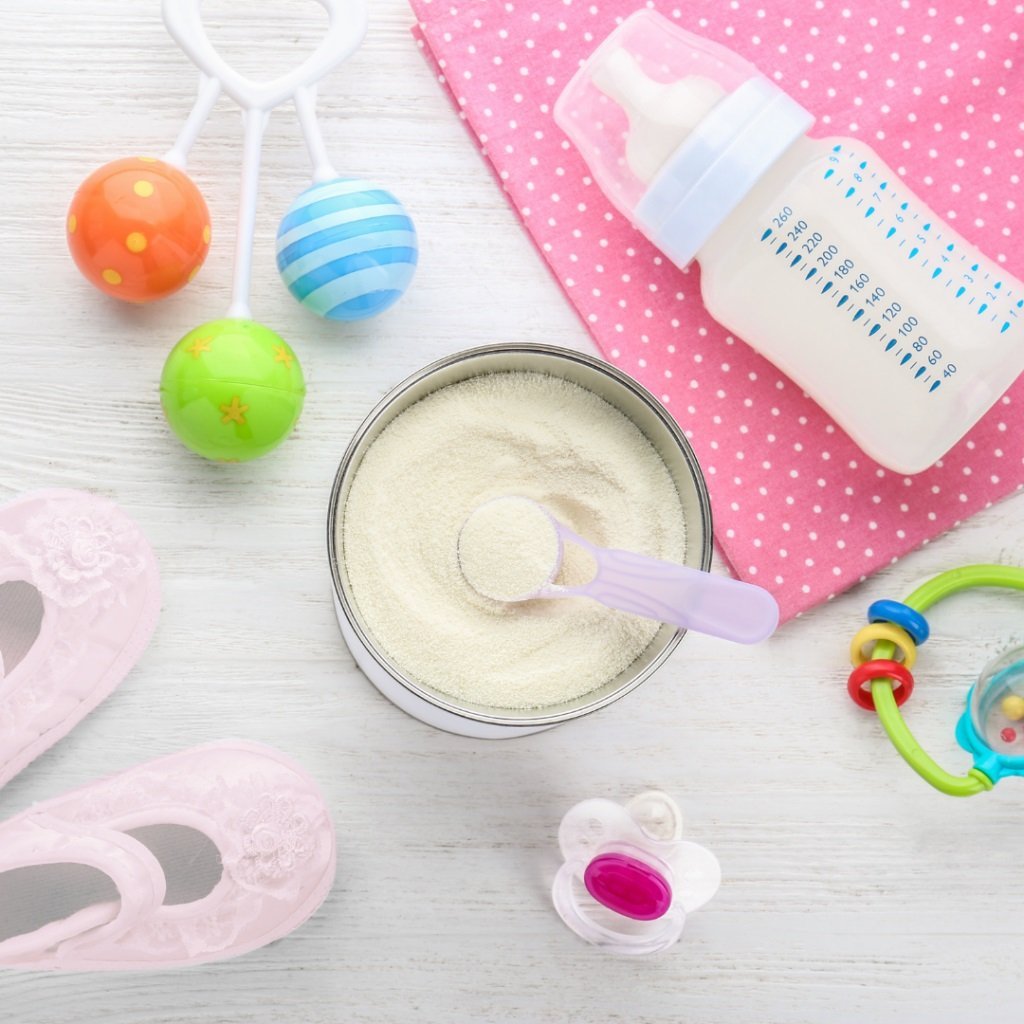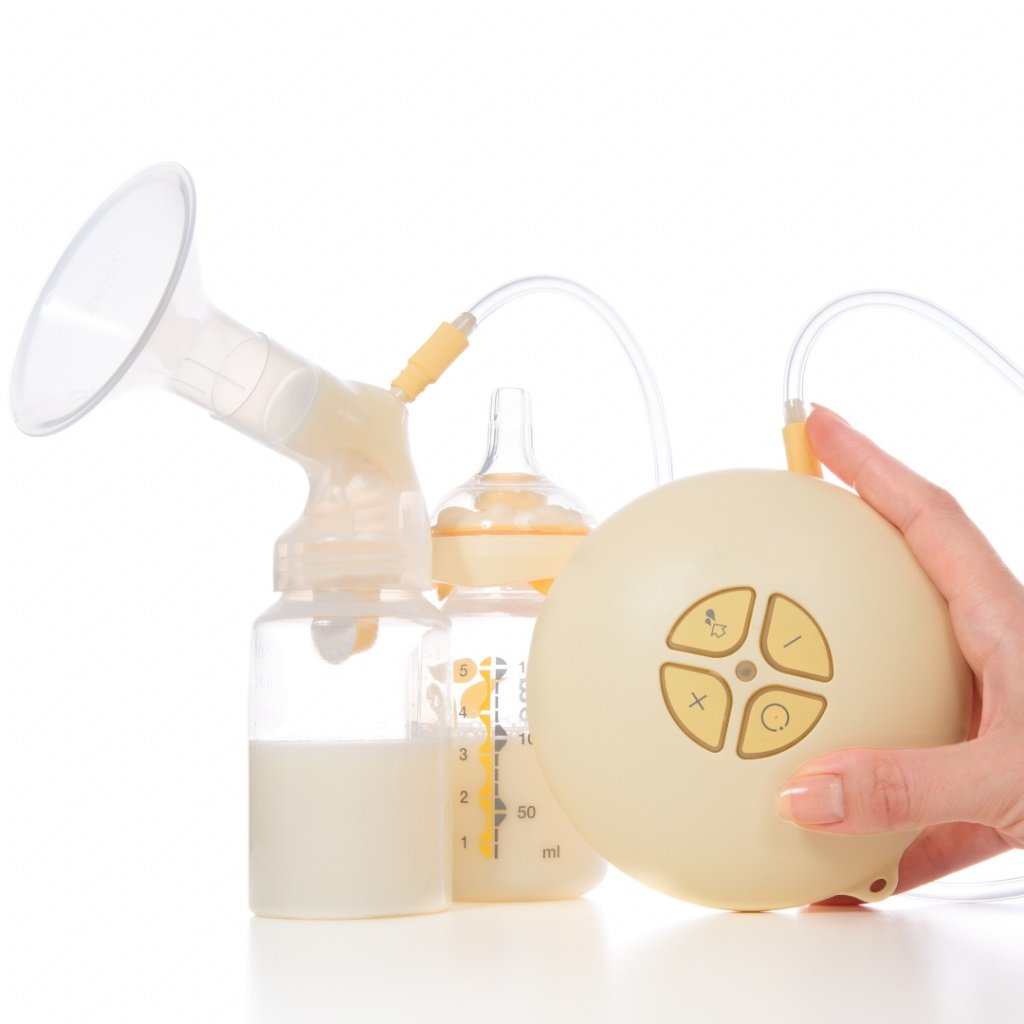
Breastfeeding is the best way to get nutrition to your newborn. But some women may struggle with breastfeeding or simply choose not to do it. Formula provides a nutritious alternative.
Before my daughter was born, I felt so stressed out about this decision. I wondered if people would judge me if I chose not to breastfeed. I spent a lot of time researching the topic and learning from health experts. I realized that this decision is incredibly personal and also learned that both formula and breastfeeding can be good for babies.
In this article, I’ll share what I learned, and explain in detail:
- What are people saying about breastfeeding vs formula?
- What are the pros and cons of breastfeeding?
- What are the pros and cons of formula?
- Can you breastfeed and formula feed at the same time?
- What should expectant mothers do next?
Breastfeeding vs Formula
The choice between breastfeeding and formula can feel overwhelming. We all want to do what is best for our babies, but there is so much to consider. How to feed our newborns is controversial and people can get very emotional about it.
Let’s go through the basics.
Health experts agree [1] that breastfeeding is the most nutritious option. The World Health Organization [2] (WHO) recommends that you breastfeed your baby for the first six months. When your baby is six months old, you can start feeding her nutritious solid foods along with breastfeeding. Keep this diet until she is one year old. Then you can phase to solid food completely if you choose, or keep going to age two and beyond.
So What About Formula?

For some mums, breastfeeding is not the right choice [3]. Some women have medical conditions that make breastfeeding difficult, while others take medications that aren’t safe for breastfeeding. And sometimes a baby can’t latch.
Another point to remember is that colic in babies is not related to being formula or breastfed. This is a common misconception. You can learn more about baby colic in our article here.
In some of these cases, you might be able to pump your breast milk and bottle-feed your newborn. But in other cases, formula is the perfect solution.
The Bottom Line?
Alexandra Sacks, MD [4] is a reproductive psychiatrist and writes about parenting for The New York Times. She says, “Breastfeeding is not nature’s way of testing your abilities as a mother.” She adds that formula feeding does not mean you failed at being a mother.
In the end, both choices can be the best for your specific situation. No new mother should feel guilt or shame for not breastfeeding her baby.
OK, let’s dive deeper into each type of feeding.
Breastfeeding Pros & Cons

What are the specific advantages of breastfeeding?
- Nutrition – Breastfeeding naturally provides all the nutrients [5] babies need to grow. Breast milk is packed with nutrients. If you choose to exclusively breastfeed, talk to your doctor about Vitamin D supplements [6]. Vitamin D is the one supplement breast milk is a little short on.
- Immune Support – Mothers pass antibodies and other germ fighters through their breast milk. Babies who drink breast milk have fewer illnesses and infections [7] than babies who drink formula. This includes respiratory infections, ear infections, stomach bugs, eczema, and allergies.
- Digestive Health – Breast milk is composed of [8] lactose, protein, and fat. All three of these are very easy for babies to digest. Babies easily get bloated and constipated and breast milk is the easiest thing for babies to digest.
- Mother’s Health – Breastfeeding is good for mum, too. Women who breastfeed may have lower risk [9] of conditions like asthma, diabetes, high cholesterol, and lymphoma. For some mums, breastfeeding supports mental health, too. However, for others, breastfeeding can increase stress. Talk to your doctor if breastfeeding is causing you emotional distress.
- Bonding – Breastfeeding is a beautiful way to bond with your baby. Skin-to-skin contact [10] promotes bonding hormones and healthy brain patterns. But you can also get these bonding benefits through bottle feeding.
The benefits of breastfeeding are amazing to learn. But breastfeeding is a learning curve for everyone. It can be quite the emotional roller coaster for new mums.
Even when it works, it can be difficult. Mums who choose to breastfeed may experience painful cracked nipples, difficulty getting their child to latch, or bad sleep. When you’re the only one with breasts, you can’t sub your partner in for a midnight feeding!
A Note About Bottle-Feeding

If you’re having trouble with breastfeeding – or need a break! – try pumping and storing your breast milk in bottles. You can refrigerate your breast milk for up to four days. If you have a partner, they can bottle-feed your baby. Bottle-feeding is a great way for them to share the parenting responsibility. It’s also a great way for them to bond with your baby. If you want to find out which is the best electric hands-free breast pump, check out our Elvie vs Willow article.
Formula Pros & Cons

For mothers who can’t or choose not to breastfeed, formula feeding has several advantages as well:
- Convenience & Flexibility – Anyone can feed the baby formula at any time. Those long midnight feedings? Someone else can take a turn! Babies also take longer to digest [11] formula than breast milk. You may have fewer feedings throughout the day.
- Shared Responsibility – If you have a partner, they can share in the responsibility of feeding your newborn. Maybe the two of you can take turns doing the overnight feedings. Or you can leave the house for a few hours during the day.
- Measuring – With formula, you can know how much your baby is eating. If your baby is struggling to gain or keep on weight, measuring what they eat can help. For some parents, it’s a relief to take out the guesswork.
- Medication – If you are on any strong medications, formula is an excellent way to protect your baby. Consult with your doctor about your medications and their interaction with breastfeeding. Some medications are safe, but many mums opt not to risk it. The decision is completely up to you.
- Food & Alcohol – If you’re feeding your baby formula, you don’t have to worry so much about a glass of wine here and there, or what you’re eating in general. Your baby won’t be getting any of it.
Formula feeding does have a few disadvantages when compared to breastfeeding:
- Digestion – Formula takes about two times longer [12] for babies to digest. It creates thicker, often smellier stool.
- No Antibodies – Formula does not provide the germ-fighting antibodies of a mother’s breast milk. When formula feeding your baby, you will need to be more aware of germs and infections.
- Safe Preparation – If not prepared safely, formula can be bad for newborns. Be sure to follow the instructions carefully and consult with your doctor or midwife about best practices.
You’ll probably read some articles about the guilt women feel if they don’t breastfeed. But you should not feel guilty for formula feeding. In some cases, formula feeding can be better than breastfeeding for you and your baby.
If you choose formula feeding, don’t be nervous about any negative emotions [13] you might feel. Focus on the fact that you chose what is best for you and your child. Be proud of your decision! And remember that your parenting journey will be full of these choices.
Supplementing With Formula
So, there are advantages and disadvantages to both feeding methods. But you might be wondering:
Is it bad to go back and forth between breastmilk and formula?
Supplementing with formula is safe and acceptable to do. Women may choose it for several reasons:
- Mum has a low milk supply
- Baby has difficulty sucking or latching
- Mum is not able to pump often enough because of work or other obligations
- Mum doesn’t have time for exclusive breastfeeding
- Mum doesn’t want to breastfeed all the time
In these cases, supplementing with formula may be the best of both worlds. The easiest way to supplement with formula is to keep everything else the same. What do I mean? If you switch sides when you’re breastfeeding, switch sides with formula. Get skin-to-skin contact. Give her lots of cuddles.
When you’re first learning how to breastfeed, you might want to supplement with formula. Especially for new mums, breastfeeding can be a frustrating learning curve. Sometimes it takes a few days for your milk to come in. Formula can help keep your baby fed while you learn to feed on your breast.
Conclusion: Do What’s Best for You And Your Baby
Is breastfeeding or formula better? In the end, your family’s wants and needs are the most important thing. Don’t get too attached to your plan. Having a baby is an incredible thing, and requires maximum flexibility.
For women who can and want to, breastfeeding is recommended for its nutritional benefits. Health experts suggest that women breastfeed exclusively for the first six months and then combine breastfeeding and solid foods. If you want to find out even more about the benefits of breastfeeding check out our article here.
Of course, for many women, formula feeding is going to be the right choice. You may have medical conditions or a life situation that calls for it. Or you prefer the flexibility.
Either way, you can give your baby everything they need. Whether you choose breast milk, formula, or both, you can have a happy, healthy baby. Think through what you want and what you’re able to do.
Then, practice focusing on the positive choice you are making for yourself and your baby.







